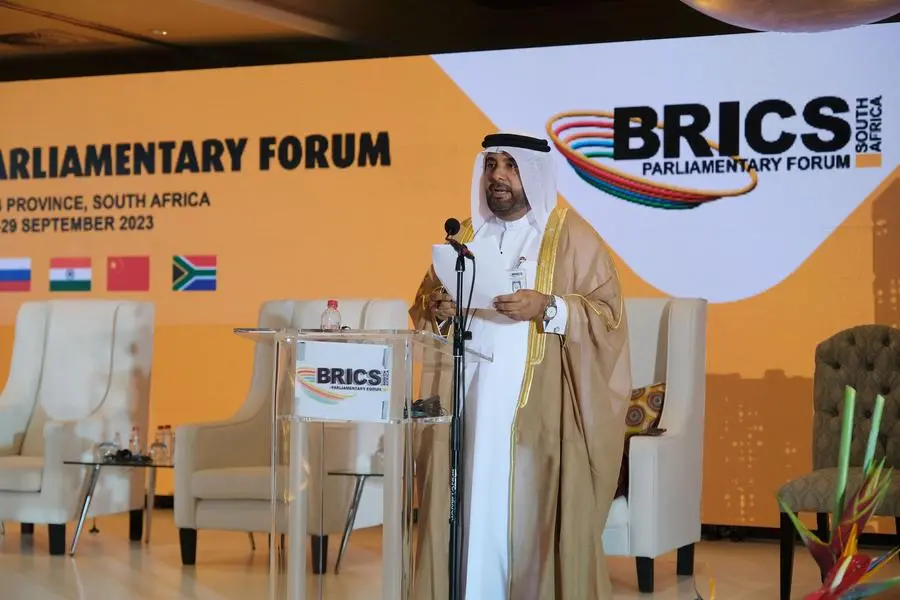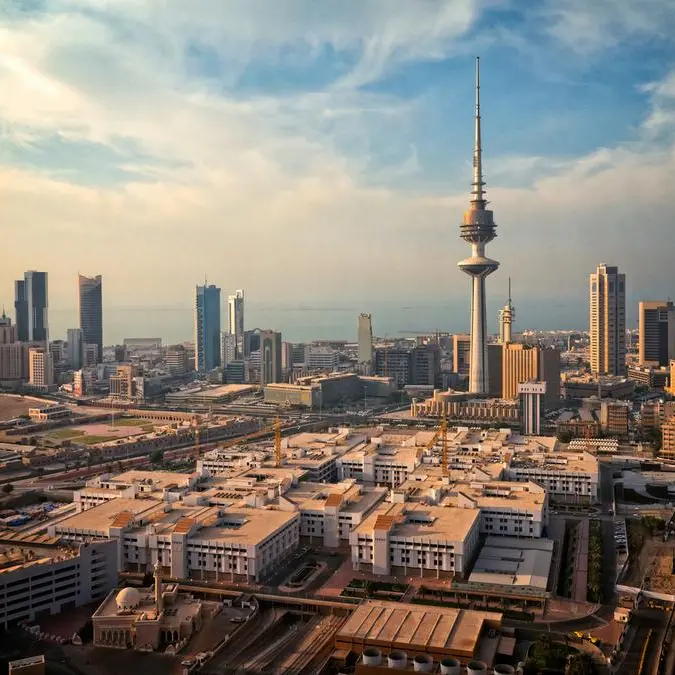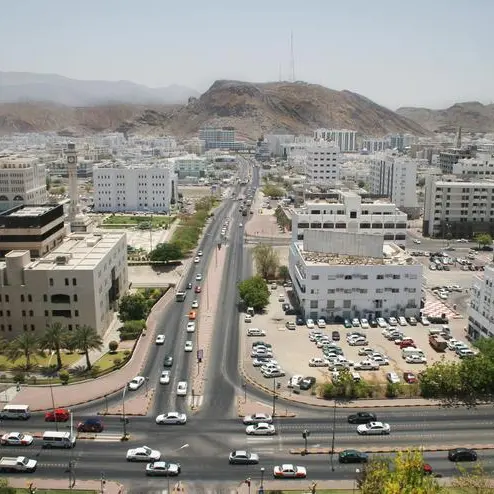PHOTO
Khalid Omar Al Kharji and Sara Mohammed Falaknaz, members of the Federal National Council (FNC), participated in a session of the Ninth Parliamentary Forum of BRICS member countries in Johannesburg, South Africa, to discuss the topic of “Harnessing multilateralism and parliamentary diplomacy to deepen BRICS and Africa partnership for accelerated implementation of the Africa free-trade agreement.”
In his speech, Al Kharji stated that parliamentarians have a shared responsibility to reduce barriers to trade and investment between BRICS and Africa, and to drive multilateral cooperation towards broader horizons.
He emphasised that national parliaments can play pivotal roles in expediting cooperation frameworks between BRICS and Africa to effectively implement the African Continental Free Trade Agreement.
Al Kharji outlined three key areas where BRICS and African parliaments can collaborate to promote economic integration between the two groups:
Legislative Area: Adopting legislative approaches that enhance economic integration by issuing necessary laws and regulations to facilitate the movement of goods and services across borders, remove trade barriers, and facilitate free trade among members.
Investment Area: Establishing legislative mechanisms that encourage both domestic and foreign investments in Africa, protect investor rights, and provide incentives for companies to invest in infrastructure and strategic industries on the continent.
Regulatory Area: Making recommendations and proposals to governments to enhance effective cooperation between BRICS and African countries, especially in areas related to infrastructure investment and raw material manufacturing.
Al Kharji also highlighted the importance of parliamentary diplomacy in promoting understanding, dialogue, and trust-building between the parties. He stressed that BRICS parliaments can play a pivotal role in supporting initiatives aimed at capacity building, enhancing education, and training in Africa, which would contribute to improving the skills of the workforce and increasing their competitiveness in the global market.





















